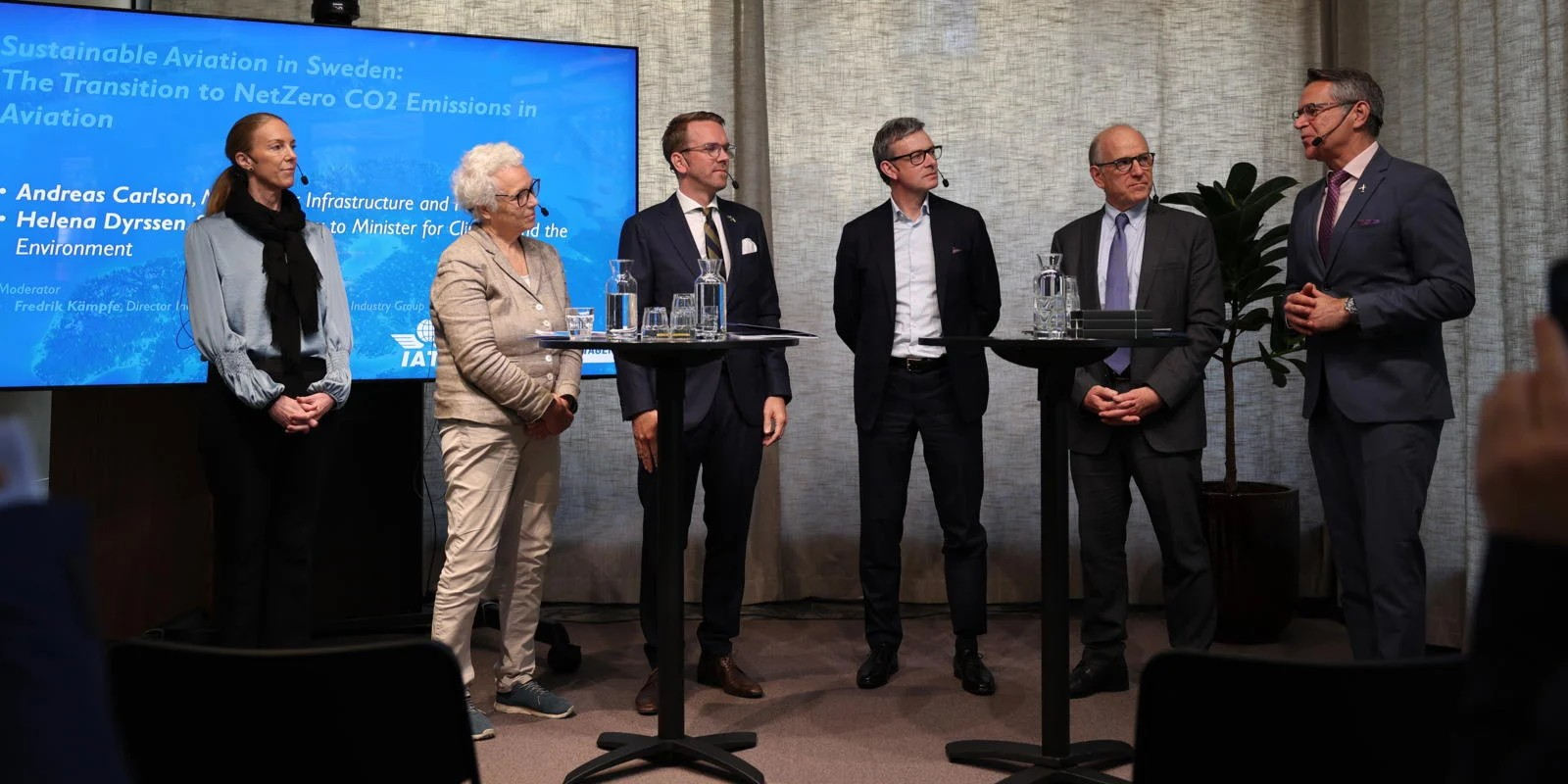
Sweden - and the Nordic countries in general - have always been at the forefront of sustainability discussions. Prior to the pandemic Sweden was making international headlines, as the cradle and symbol of the “flygskam” (flight shame) movement.
But in the light of Sweden’s slow aviation recovery since the end of the pandemic restrictions, the new government have taken some important positive decisions. The first was to announce the abolition of the passenger tax, which became a reality last week. The policy has shifted from punishing people for flying, to enabling air connectivity to thrive while focusing on decarbonization measures. The most important element of that is to encourage Sustainable Aviation Fuels (SAF). SAF is the solution that can deliver most CO2 emissions reduction in the short and medium term.

Sustainable Aviation Fuel represents around 65% of the solution to reaching Fly Net Zero by 2050, and to reach the levels of production needed by then, the ramp-up of SAF needs to begin now.
Policy recommendations have been split into three stages:
In the case of Sweden, a gap analysis was conducted to understand the country’s current SAF position, what remains to be done to meet the FNZ2050 targets, and to identify business opportunities.
In this context, in May, IATA co-hosted a breakfast seminar together with the Swedish Confederation of Transport Enterprises, to present and discuss the gap analysis report. Also in attendance was the Swedish Minister for Infrastructure and Housing, the State Secretary to the Minister for Climate and Environment, as well as leaders from Preem, SAS, and Transportföretagen.

From left to right: Anna Wilson, Head of External Affairs, SAS; Helena Dyrssen, State Secretary at the Ministry of Climate and Enterprise; Andreas Carlson, Minister of Infrastructure and Housing; Magnus Heimburg, President and CEO, Preem; Rafael Schvartzman, Regional Vice President for Europe, IATA; Fredrik Kämpfe, Industry Manager Aviation; Transportföretagen
Bringing together all these stakeholders around the table resulted in a positive outcome. Shortly after the event, Sweden’s Minister of Infrastructure & Housing, Andreas Carlson. announced the Government would take significant steps to promote sustainable, fossil-free, and low-carbon fuels for aviation and shipping. Investigator Mattias Viklund has been tasked with developing an action plan, due by April 30 next year, to increase the supply of Sustainable Aviation Fuel and shipping fuel. The plan will outline concrete measures, coordinate with relevant actors, and focus on domestic production, leveraging Sweden's resources such as forestry residuals. This initiative complements the Swedish Energy Agency's ongoing efforts to support the transition to fossil-free energy in the transport sector.
Reducing emissions in aviation and shipping is crucial, and this action plan marks an important step towards energy transition. We look forward to a continued active collaboration with the Swedish Government and call on other Governments to follow this example joining forces with the industry to work hand in hand. It is only together that we can deliver the net zero aviation of the future.
Additional Information: